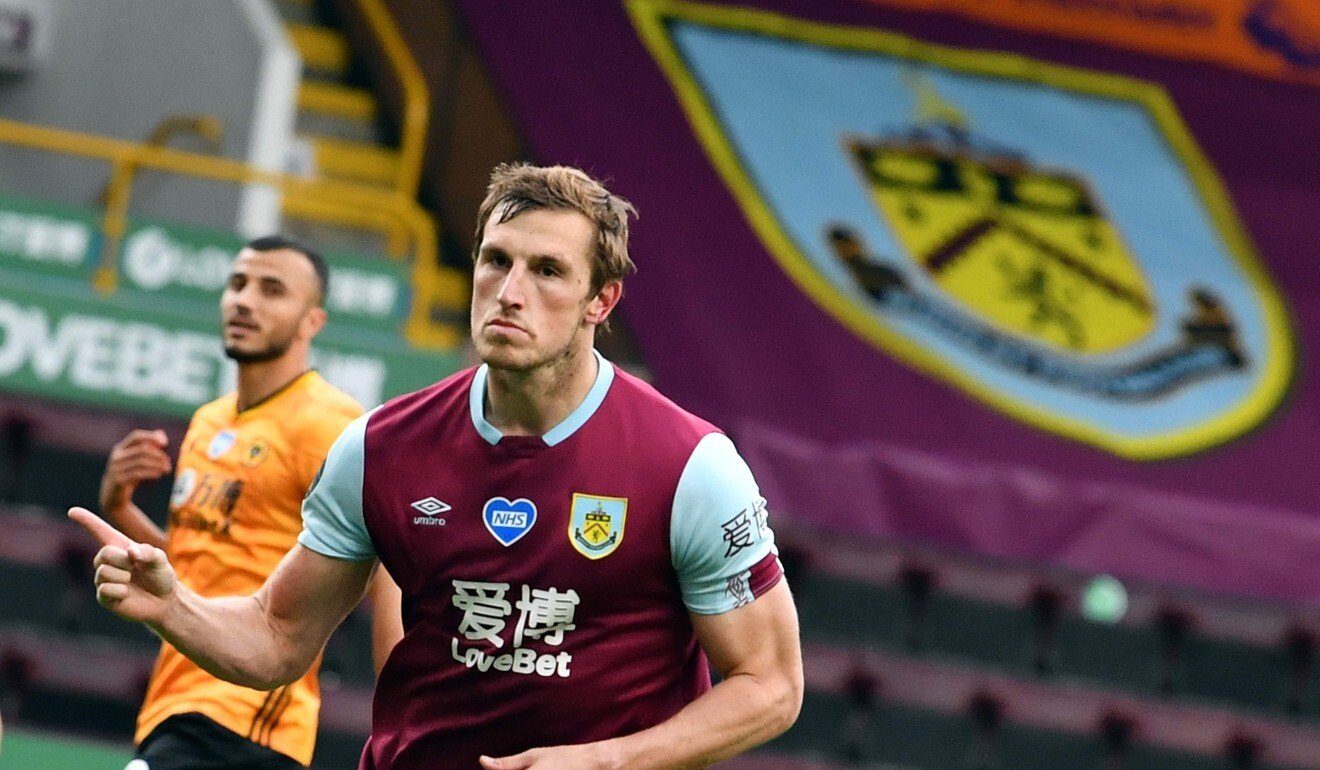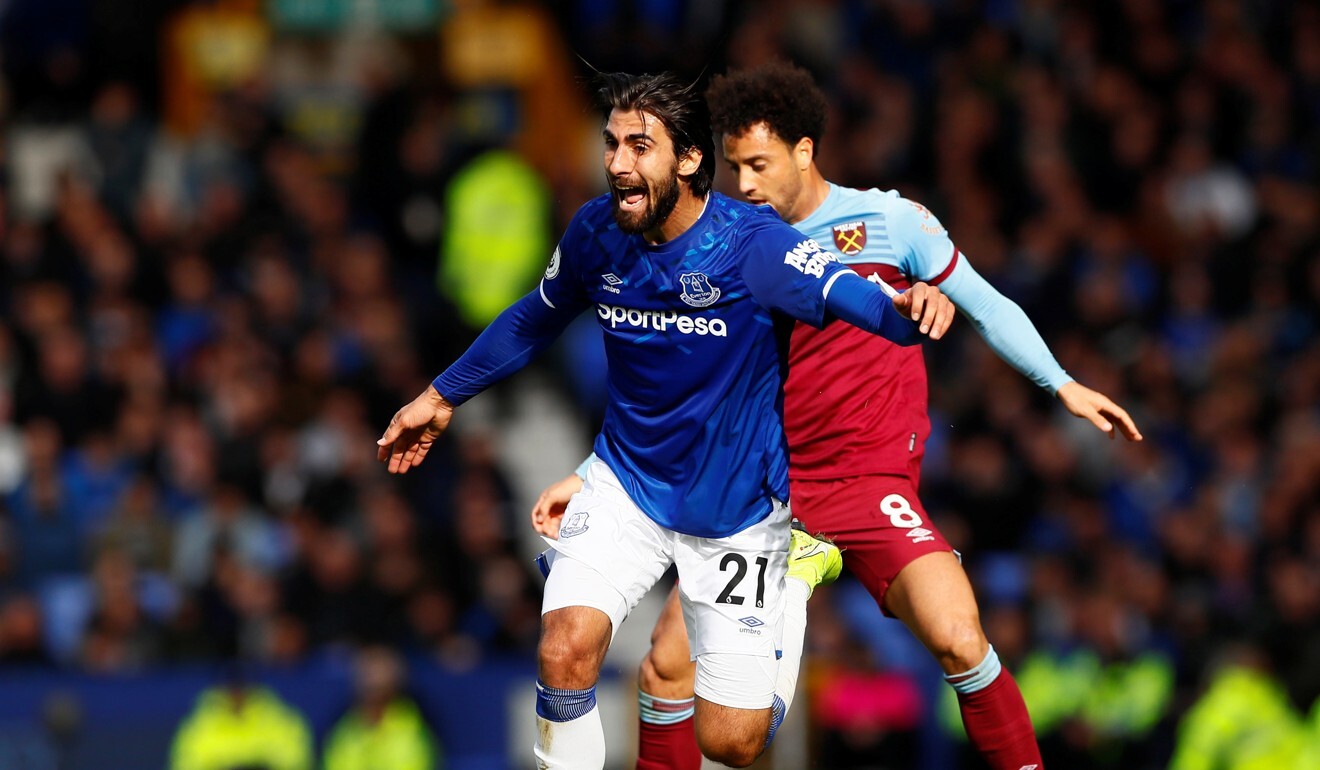
Asia-facing betting sponsors putting European football at risk: report
- Global Lottery Management System warns of dangers to integrity from widespread links to betting companies targeting Asian markets
- In English Premier League, half of the clubs had a betting sponsor on shirts, while six included Chinese characters, despite ban on online gambling in China
Rumours of a giant bet on Wigan Athletic’s relegation placed in the Philippines as a reason for the club’s plummet into administration put football’s relationship with Asian gambling markets back in the headlines last month, but a new report warns of a different danger.
Asia-facing gambling companies are a potential threat to the integrity of European football, according to a new report by the Global Lottery Management System (GLMS).
The transnational alliance of lotteries against sporting competition manipulation released A Study of Betting Operators and their Sponsorship of Sport to raise awareness on the “scope and scale of betting sponsorships”.
Clubs in the English Premier League and second-tier Championship in particular have developed strong ties with gambling companies as partners and sponsors in recent years. The scope of these deals ranges from league-wide to individual deals with clubs as main shirt and sleeves sponsor, advertising hoardings and matchday programmes to being official betting partners.

However, betting sponsorship has increased across the continent in the leagues they looked at, including the top flights in France, Spain, Italy and the Netherlands.
The report aims to “illustrate how some betting operators exploit these partnerships with sports teams to market to customers in jurisdictions (particularly in Asia) where most online betting is illegal or where the national jurisdiction practices prohibition”.
A majority of the 188 teams have betting sponsors, while a quarter have company logos on their shirts. The report also says that almost one third of clubs have deals with companies operating in black or grey markets.
In the English Premier League, 10 of the 20 clubs had a betting sponsor on their shirts, while six included Chinese characters. ManBetX sponsors two clubs: Crystal Palace and Wolves.
Multiple sponsorships by one company in the same league is not unusual, with Betway the shirt sponsors of three Spanish La Liga sides: Alaves, Leganes and Levante.

Even outside the companies sponsoring shirts, many offer services in languages from countries where online gambling is illegal, such as Thai, Vietnamese, Cambodian and Korean. The vast majority offers simplified Chinese targeted at mainland China, while mirror websites, allowing users to access where they would otherwise be blocked, were also found to be common.
GLMS flagged concerns over Asia-facing companies that operate in the UK through so-called “white label” companies that allow them to operate under their licence and a number of the English Premier League teams fall into such a category.
“Under such white-label agreements, operators agree deals with already-licensed operators to operate under their licence, generally using the same trading capabilities, customer management software and other back-end technology.”

The report found that many such white-label companies existed solely for the duration of the contract before disappearing, citing OPE at Huddersfield Town.
“While some brand names remain, there have been some new companies which, with little or no discoverable past, are able to afford EPL shirt sponsorship and once the sponsorship period has ended, these brands no longer exist,” GLMS said.
As the Daily Mail reported, these deals are attractive to clubs as betting sponsors can often offer double what another sponsor might pay.
Not all of these relationships have run smoothly. English Premier League clubs have had run-ins with betting sponsors. Manchester United and Watford were both seeking monies from their former betting partner, MoPlay, an Asia-facing company registered in Armenia. Last September, the Old Trafford club were seeking US$11 million via a US payday lender who had guaranteed the deal on behalf of MoPlay after their deal was terminated following missed payments.
More recently, Bournemouth announced last month that they had ended their association with Asia-facing M88 around the same time as the Great Britain Gambling Commission announced an investigation into the company. Everton, meanwhile, ditched SportsPesa two years early, after the Kenya-facing TGP Europe-licenced company saw its Kenyan licence revoked by the government.
Manchester United subsequently signed a deal with Yabo, another Asia-facing betting company operating under a white label.
Yabo, which “operates betting websites through Isle of Man-registered, UKGC-licensed TGP Europe Limited”, according to the report, has also signed a league-wide deal with Italy’s Serie A, alongside several European clubs.
“Its websites and services are Asia-facing, in simplified Chinese only targeting customers in China and Asia,” the report said. “On top of the main website yabo.com, a number of mirror sites and alternative apps are available for customers in Asia, plus a wide range of payment solutions such as Alipay and WeChat Pay which are also available in China.”
Philippines-based multi-language site LeTou, which sponsored Swansea City shirts in 2017, also operates under TGP Europe, offers white label services to betting companies that sponsor many sports.
“Gaming industry reports claim that TGP’s ultimate owner is casino VIP room operator Suncity, which is operationally based in Macau and listed on the Hong Kong stock exchange,” the report said.
Meanwhile, Suncity, which operates casinos and VIP rooms in Macau while expanding into the Philippines, had its own company, 138.com, as sponsors of Watford in 2013. Earlier this year 138.com ceased to exist.
As Reuters reported last July, Suncity had been targeted by mainland media because of its junket group’s operations in Macau and facilitating online gaming in the Philippines. The group’s junket was unrelated to its Hong Kong-listed business, while they denied operating online gaming in a statement.

The most worrying concerns for GLMS were the potential for illegal activity as raised by connections to Macau, where the “casino industry has long been accused of being heavily linked to local Asian-organised criminal groups”, it wrote. Other reports have flagged the Philippines as similarly at risk.
“The huge Asian betting markets facilitate illegal betting, match-fixing and corrupting sport – this clearly leaves sports and teams who profess to cherish sports integrity open to accusations of hypocrisy,” the report said.
“Asia-facing betting operators leverage on their association with respected sports teams to legitimise their products and target customers in Asia, where both European football and betting are hugely popular,” the GLMS continued.
“For sports teams and official governing bodies, this should raise concerns as Asian betting operators market to customers in jurisdictions where most online betting is illegal or unlawful.”

